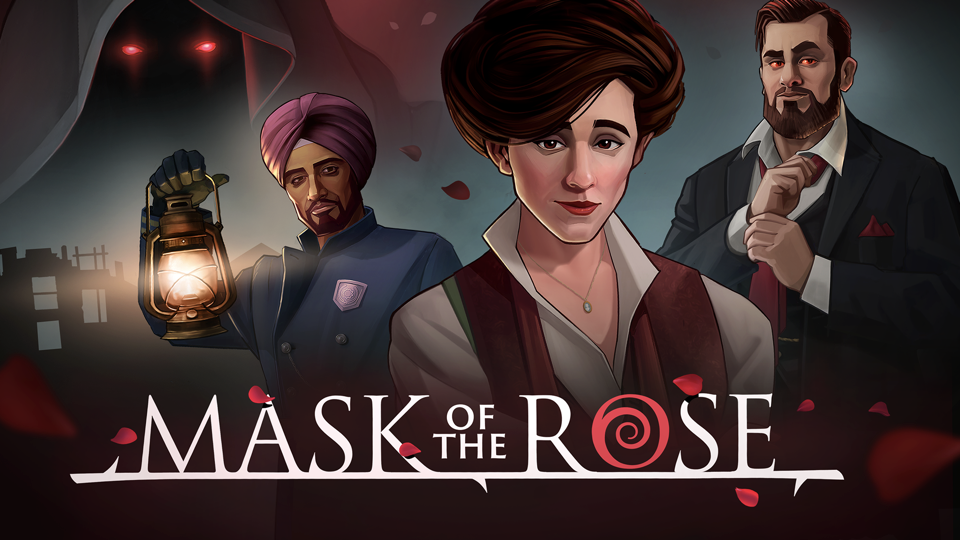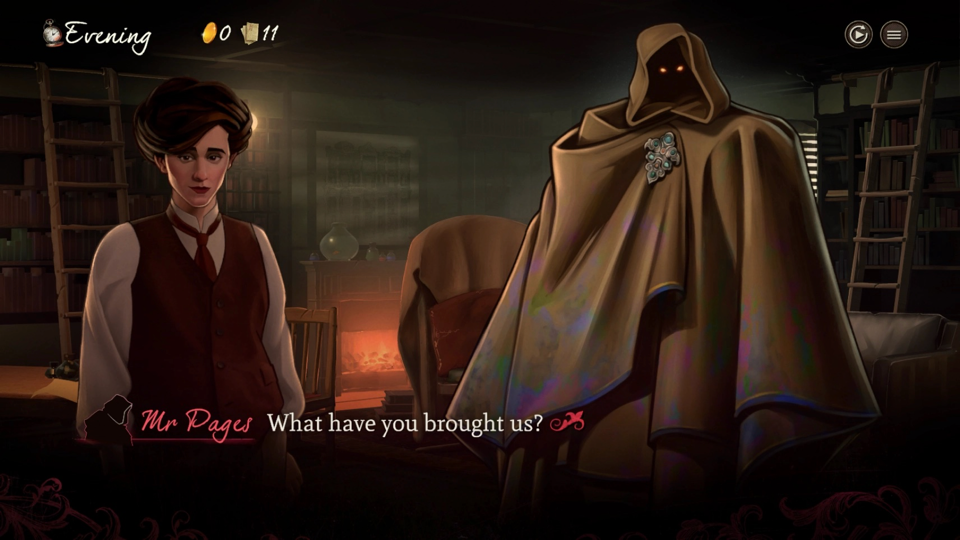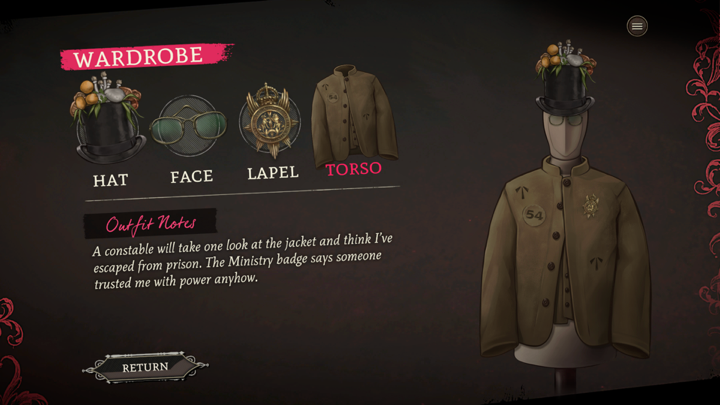
Mask of the Rose is a dating-and-murder-mystery virtual novel set in Failbetter’s Fallen London universe. In line with that genre, it typically gives the player between two and four dialogue choices for conversation – occasionally more or fewer than that, but usually keeping things in that range.
The trick was, though, that we wanted to actually grant the player a lot more latitude than that to decide what they wanted to say. I’ve always been interested in expressiveness in player dialogue, both as an aid to roleplaying and as a way to enable intentional, high-agency game play.
My goal in designing this way is to let the player plan ahead, adopt specific approaches to other characters, and play them out, as opposed to being entirely reactive to whatever dialogue choices happen to pop up in a given scene.

In Mask, this takes two major forms. One is through the player’s character traits and wardrobe: at the start of play, you can decide what sorts of conversation options are on brand for you. Do you tend towards jokes or melancholy observations? Are you rigorous about the truth, or do you lie sometimes?
Many games put those personality-characterising options side by side in a dialogue menu, but that means that if you’re trying to play a consistently melancholy character, you’re stuck with your dialogue choices pretty much pre-decided for you: you just have to pick the one Melancholy option every time. And there isn’t really as much room to define your PC around multiple distinct types of trait, whereas in Mask we wanted the player to be able to combine, e.g., being melancholy and boastful, or gloomy but confiding.
To accomplish that in Mask, we have a larger pool of potential dialogue at any given stage in the conversation, and filter it to show just the options that are currently suitable for the player.
(If you’re interested in the technical aspects of doing something like this in the Ink language, by the way, I recommend Inkle’s posts on Overboard!, where they’re also drawing dialogue options from a pool each turn.)
Of course, our choices can be determined by situation as well as by personality, so for Mask we let the player further inflect how they’ll present themselves using the wardrobe. Different wardrobe items advertise different social affiliations, or spin the PC towards a snobbish, flirty, or unfriendly self-presentation.

That got us halfway to where we wanted to go, giving the player range to roleplay someone with a specific social style, using a fairly large palette of available options.
Beyond the social element, though, we also wanted to deal with knowledge, and let the player express particular ideas or ask particular questions. Handling player knowledge is always a significant challenge in interactive narrative: while you can track what the player has seen during gameplay, you can’t track what they remember, and you definitely don’t know what they’ve concluded on their own. So if the aim is to present the player with the ability to articulate the state of the world as they actually understand it, you first have to find out what the player does understand. Which isn’t always easy.
Many mystery games just dodge this problem completely and use straight adventure game mechanics (solve this string of puzzles and you’ll find the necessary evidence). These might be using other genre trappings of a mystery, but they’re not really asking the player to deduce the solution. Other mystery games ask the player to demonstrate they understand the mystery’s logic, but still only in reactive circumstances, like presenting counter-evidence when a witness lies in Phoenix Wright, or noting when an NPC has said inconsistent things in Contradiction.
For Mask, we wanted to enable an active process – one where the player forms hypotheses, investigates their ideas, and refines what they think based on new information.
To let the player express their hypotheses, we put together an interface where the player has a sort of red strings murder board (without the actual red strings). This is essentially a crafting system, and one in which the player can craft both questions about the mystery and their own finished explanations for what really happened.
Once they’ve formed a hypothesis, it opens up options in dialogue… though it may still not always be wise to say what’s on your mind:

The storycrafting system is best shown off with some screenshots. These shots are not completely spoilery, but if you want to play Mask of the Rose fresh, you may want to stop here. (And in that case, you may like to know the game is currently on sale on Steam.)
For those open to mild spoilers, here’s a bit more detail. The screenshots and description talk about the very latest release of Mask, iterating on player feedback on some things they found confusing at launch – so if you’ve played and these look a little different, that’ll be why.
Onward:
Continue reading “Dialogue Expressiveness in Mask of the Rose”




